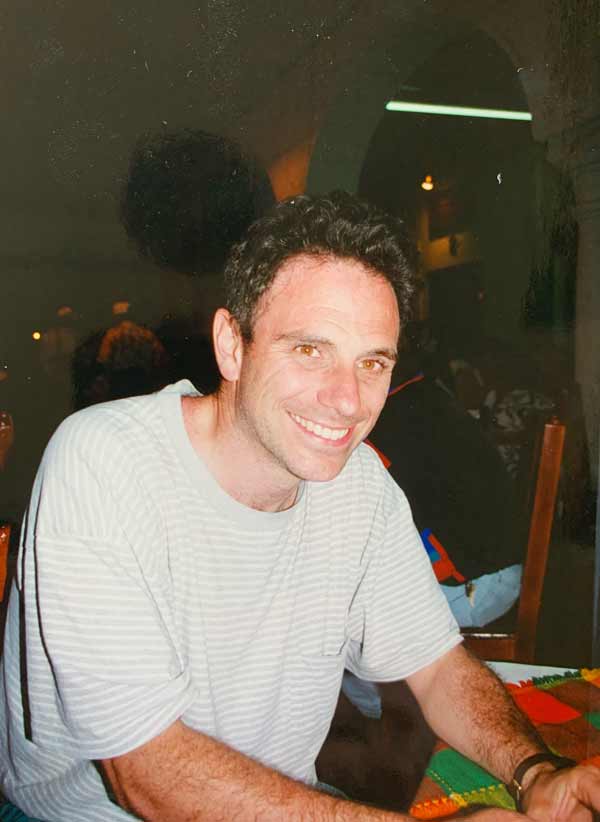Ormiston Academies Trust chief executive Nick Hudson tells Jess Staufenberg how he honours the chain’s founding principles of schools rooted in their communities, coping with geographic struggles and thoughts on the controversial schools bill
Nick Hudson, chief executive of Ormiston Academies Trust, is shepherding me into a classroom where a geography teacher is in full flow. With us is one of his 43 headteachers, Claire Stanyer, principal at Ormiston Meridian Academy in Stoke-on-Trent. I’m just commenting admiringly on how spacious the secondary school is, when a pupil stands up.
“Emily is our lead learner,” explains the teacher, to the comprehension of everybody except me. Emily then delivers a detailed explanation of a chemical disaster in India, after which the teacher encouragingly presses her with more complex questions: what is globalisation? Her answer is better, and shorter, than anything I’d have given.
We then enter an English lesson where another “lead learner” is explaining marginalisation. The answers are so impressive, I’m worried I look patronising.
Hudson, who became chief executive in 2018, is smiling happily beside me. He’s running one of the biggest academy trusts around, and we’re in a school that got a ‘good’ Ofsted grade this year.
The “lead learner” initiative tells you a bit about the kind of trust Hudson is running. It’s Stanyer’s own idea: a different pupil is chosen as lead learner every lesson and at any point will be asked to explain topics to their peers. As a result, the oracy skills I observe are genuinely impressive.
“We don’t roll down initiatives from the top like that – this is Claire’s idea, and she will now share it with the six other principals in her region too,” explains Hudson. When he took over from Toby Salt, who left to join exam board AQA, he ramped up the regional emphasis in the trust.
Previously the four education directors for the north, south, east and west regional groups also held other roles, but Hudson made these standalone jobs. He also added an extra director for each region (except the south, which has one, plus a director for London).
“It’s because the biggest challenge around being chief executive of OAT is its geographical spread,” he tells me over a cup of tea. “We have schools in the Isle of Wight, Grimsby, outside Liverpool, west Midlands, Great Yarmouth, all over. Investing in the education directors means they can work in smaller groups, and I think that’s absolutely vital as a way of linking principals together in the organisation and to one another.”
He continues: “In all my work throughout my life, what I’ve been trying to do is create a sense of community. That’s what has motivated me.”
This emphasis has deep roots in Hudson’s past. He and his younger brother were brought up in north London by their mother who “dedicated her whole life to bringing us up”. Community education mattered to his mum, and she wouldn’t countenance her sons going to a grammar school. “My school was a real cross-section of people, and was pretty formative to the way I look at life,” says Hudson.

After school, where he was head boy, Hudson studied sociology at the University of Hull and went travelling. Then he studied a PGCE that covered both schools and further education, specialising in post-16 at Wolverhampton Polytechnic, and was soon teaching sociology in a school, communication skills to electricians and plumbers and sociology to adults at a college in the evening.
From then on, Hudson always took on community-oriented responsibilities, whether at Longbenton community school in Newcastle, which also ran day centres for the elderly, social services, a youth club and a crèche – or at Oulder Hill community school in Rochdale, where he was responsible for community education programmes.
“I became really, really taken by this model, and with the community school movement at the time,” smiles Hudson. He got involved with the now-defunct charity Community Education Development Centre, and even won a bursary to study community education in Michigan for six weeks.

After working with local authorities and even in west Africa (see CV), Hudson then became Ofsted’s regional director for north-east Yorkshire and the Humber.
But despite enjoying his time at the inspectorate, Hudson tells me “the job of improvement happens elsewhere, and I wanted to go back to that”.
He doesn’t, however, think Ofsted should do school improvement work too. “There’s a real danger there of marking your own homework.”
It was OAT’s founding principles, he says, which made him apply to be national director of education in 2017. Peter Murray, the founder, created the Ormiston trust fund with an offshoot called Ormiston Families, which runs children’s centres, services and counselling, he says.
The trust fund has raised huge amounts of extra revenue: in 2019, Schools Week reported OAT had received £2.7 million since 2017 through charitable trusts and National Lottery-funded organisations.
“When Murray was asked to become an early sponsor of academies, he gave conditions,” Hudson smiles. “He said the schools would be rooted in their communities, and that there would always be opportunities for an extended curriculum.”
So that’s why the “lead learner” initiative at Ormiston Meridian fits with the trust’s heritage around student enrichment, he explains. Meanwhile, a parallel student scheme called “I will” involves pupils in social action projects, including community day events and awareness campaigns.

It seems Hudson has come full circle. Most recently he’s expanded the trust further into communities by taking on four alternative provision academies in London last September – Latymer, The Bridge, Beechcroft and Courtyard AP.
Hudson is clear, but cautious, that he wants OAT to grow further given the government’s plans for boosting academisation. But he adds: “We’d want to be part of that in a way that was measured – and not in any way be in a scenario where we would want to take on a large number of schools in quick succession.”
Hudson’s caution seems to stem from elements of the current schools bill that have alarmed many.
“The area that many CEOs are interested in are those aspects of the bill that may compromise our ability to actually maintain our freedoms,” he says. “In the bill, there’s this list of standards the government is saying everyone should adhere to, but at the moment they’re very, very vague.
“We’re hoping to work with government to adjust them in such a way to make it clearer what they mean, and how, or how not, the government may put these new standards on us.”
The recent white paper also promises to “bring together new and existing requirements on academy trusts into statutory academy trust standards”, and will give ministers “new statutory intervention powers” to “underpin” those standards. Hudson’s issue is that it’s not clear what this all means.
“When they can intervene, again that’s vague. It’s fair enough that the Department for Education, through new regional directors, would potentially intervene if an academy trust is not performing. But we need to be clear what the actual perimeters are.”
For now, Hudson’s immediate focus is ensuring the success of the new AP academies. “It’s a big decision to take on AP. We’ve never done that before.”

But this latest expansion also increases the challenge of running so many institutions. In 2019, the now inadequate-rated Ormiston Denes Academy in Suffolk was found to be off-rolling students in year 11, with Ofsted inspectors calling it a “well-established practice”. Hudson tells me the practice has completely ended.
He adds, honestly, that he “would not be being quite truthful if I said I managed to get to every school in one year”.
It presents a real challenge to trusts like OAT that value community embeddedness, and the kind of autonomy Stanyer clearly enjoys as a principal. That challenge will only increase as the government encourages more schools into trusts by 2030.
As Stanyer waves us off at the school gates, I reflect on Hudson’s thoughts.
“It’s really important the principals meet and talk together,” he nods. “It’s important they can act as a community amongst themselves. I want to make sure that’s possible.”









So the National Lottery is now funding our private sector-led academies and chains? Or is that funding being used to offer obscene levels of remuneration to executives that were neither needed nor sought after prior to the academisation/privatisation drive?